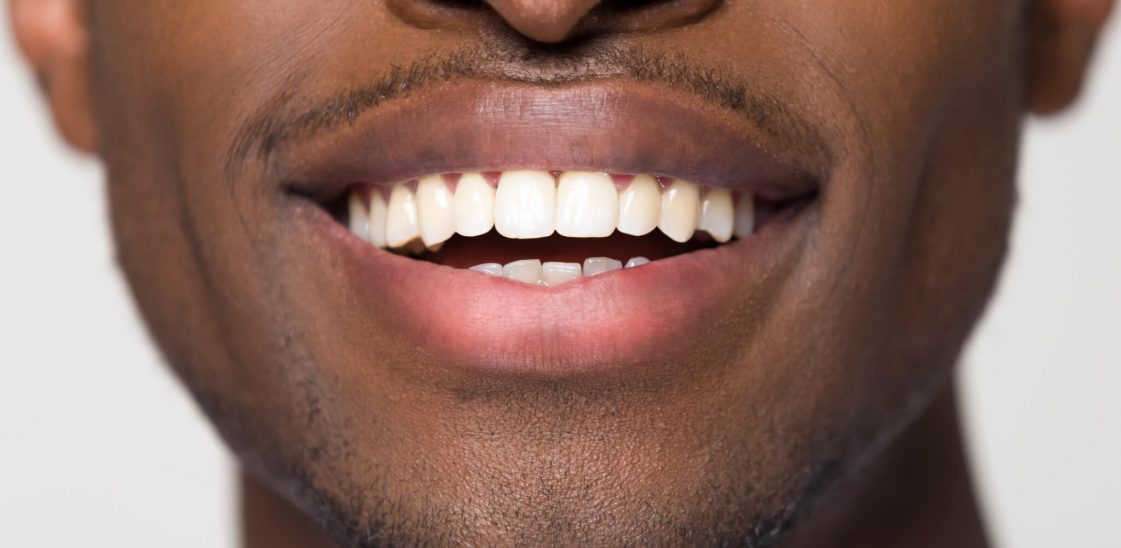
What is enamel and why is it important?
While most people understand the important role a good dental hygiene routine plays in keeping teeth and gums healthy, not everyone understands what enamel is and how important it is when it comes to oral health. However, the fact is, taking care of the enamel on your teeth is half the battle when it comes to good dental care. While we have recently explored ways to strengthen the enamel on your teeth, in this handy guide we explain what enamel actually is and why it is so important.[1]
What is enamel?
The hardest substance produced by the human body, enamel is the thin outer covering found on each tooth. This layer is made up of a tough combination of the mineral hydroxyapatite, fluoride, carbonate, magnesium and sodium, and covers the entire crown of the tooth (the part of the tooth visible above the gumline).
The condition of your enamel plays a big role in the overall appearance of your teeth. This is because enamel is semi-translucent, meaning it can appear anything from a light brown or yellow to a greyish white depending on how well you look after your teeth. However, it is important to note that the condition of your enamel is only one of a number of factors that can impact the colour of your teeth.[1]
Why do our teeth need enamel?
Located on the very outer layer of your teeth, enamel works to protect the inner, more sensitive areas of your teeth (known as dentin and pulp). As your body is unable to create more enamel over time, if it becomes damaged or is stripped completely as you age, your teeth become exposed and you are more likely to experience sensitivity (especially temperature sensitivity), as well as cavities, tooth infection and gum disease.[2]
For this reason, protecting your enamel by practising a solid daily oral hygiene routine is essential to maintaining good dental health.
What happens when you have no enamel on your teeth?
As the first line of defence for your teeth, enamel is prone to a lot of wear and tear – this is known as enamel erosion. Caused by the things you eat – including sugary foods, starchy foods and acidic foods – as well as things like teeth grinding, acid reflux, and certain hereditary disorders, erosion to your enamel can cause a range of symptoms and can impact your dental health in a number of different ways. This includes:
- Discoloured teeth – teeth may start to look stained and yellow
- Sensitive teeth – especially when consuming hot and/or cold drinks
- Areas of transparency – areas around the edges of the front teeth may appear transparent
- Brittle teeth – teeth may become more prone to chips or cracks.
If you notice any of these symptoms, speak to your dentist. They will be able to assess the issue and provide advice outlining the best way to address the problem before it progresses.[1]
How to protect teeth enamel
There are many ways to protect the enamel on your teeth, some of which overlap with the methods of strengthening tooth enamel outlined on our recent blog. However, as a rule, you should always follow the below advice to protect your teeth from enamel erosion.
- Brush twice a day
Using a soft-bristled toothbrush and fluoride toothpaste, you should brush your teeth for two minutes, twice a day. This should be done at least 30 minutes after you’ve last eaten and care should be taken not to brush too vigorously. If you notice the bristles of your brush are becoming squashed as you brush, you are applying too much pressure.[3]
- Floss regularly
Flossing should accompany brushing as part of your daily oral hygiene routine. By using top quality flossing products, such as DenTek’s Complete Clean floss picks, enamel-eroding particles and substances can be removed from the gaps between your teeth. As with brushing, it is important to floss twice a day.[3]
- Limit sugary foods/drinks
The bacteria naturally found in your mouth feed on the sugar in the food and drinks we consume. They convert them into acids, which in turn can start to wear away at the enamel on your teeth. For this reason, limiting the amount of sugar snacks you eat and sweet drinks you consume can help to protect your enamel. Washing your mouth out with a glass of plain water after eating can also help.
- Treat symptoms of acid reflux/heartburn
As touched on above, if you suffer from severe acid reflux, GERD or heartburn, you may experience stomach acid reaching your mouth. When this happens, the acid can wear down the enamel on your teeth. For this reason, it is important to deal with these disorders as soon as possible by talking to your doctor about treatment.[4]
- Avoid grinding your teeth
Whether you do it in your sleep or when you are feeling stressed, subconscious teeth grinding is a common cause of worn down enamel and damaged teeth. If you suffer from this habit, talk to your dentist. They may suggest providing you with a custom-fitted mouthguard that can be worn at night to protect your teeth and their enamel.[5]
- Visit the dentist regularly
You should visit your dentist for a checkup at least twice a year. They will be able to spot any early signs of enamel erosion and provide you with the advice you need to arrest the problem before permanent damage is done.[3]
Resources:
[1] https://www.nhs.uk/conditions/tooth-decay/
[2] https://www.ncbi.nlm.nih.gov/pmc/articles/PMC6151498/ Lacruz, Rodrigo S et al. “DENTAL ENAMEL FORMATION AND IMPLICATIONS FOR ORAL HEALTH AND DISEASE.” Physiological reviews vol. 97,3 (2017): 939-993. doi:10.1152/physrev.00030.2016
[3] https://www.nhs.uk/live-well/healthy-teeth-and-gums/how-to-keep-your-teeth-clean/
[4] https://www.nhs.uk/conditions/heartburn-and-acid-reflux/




